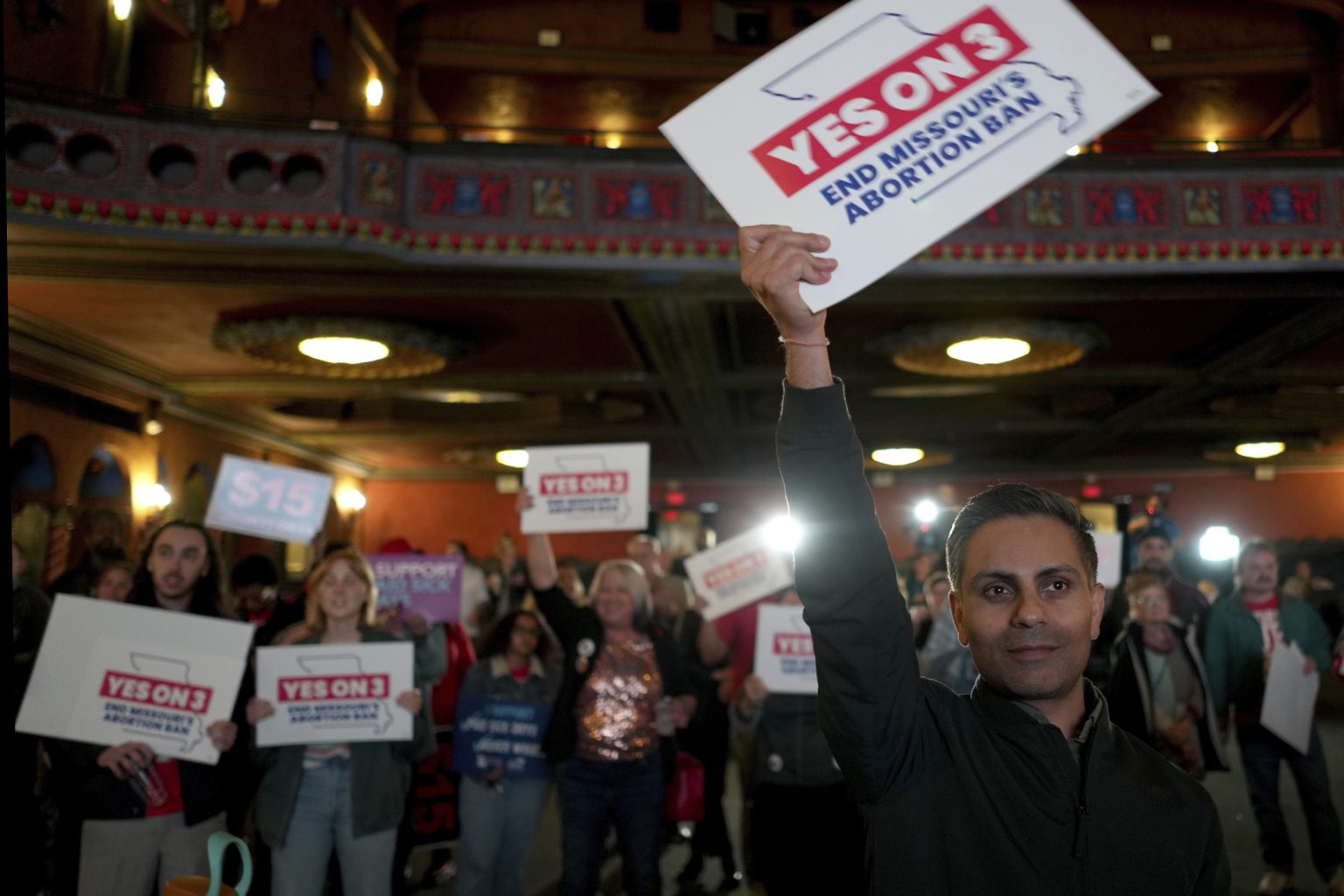The recent election results have generated significant attention on abortion rights, particularly in Missouri, where voters approved a ballot measure that could potentially roll back the state’s current ban on abortions. This move comes after a series of wins and losses across the U.S., with seven notable victories for reproductive rights advocates but three losses that marked the first since the Supreme Court overturned Roe v. Wade in 2022.
Missouri residents voted to legalize abortion up until fetal viability, effectively overriding the state’s strict ban on nearly all abortions and enshrining the right to abortion in the state constitution. Missouri had been the first state to implement such a ban, with very limited exceptions, following the overturning of Roe v. Wade. Abortion clinics had faced extensive regulations, leading to a halt in abortion services. In response, advocates collected signatures for Amendment 3, leading to the recent vote on legalizing abortion up to around 24 weeks.
Following the election, Planned Parenthood of the Great Plains filed a lawsuit in state court seeking to invalidate Missouri’s abortion ban and various regulations that impact abortion care. The amended law is set to take effect soon, but it does not automatically override existing laws, necessitating legal challenges to restore abortion access. The lawsuit challenges requirements such as clinicians needing surgical licenses and mandatory pelvic exams for patients seeking medication abortions, among other regulations that impact access to care.
Abortion rights proponents have pointed to the recent victories as a sign of widespread support among voters, despite setbacks in states like Florida, South Dakota, and Nebraska. In Florida, Governor Ron DeSantis actively opposed the measure, leading to its failure despite majority support. In South Dakota, national abortion rights organizations did not support a measure that focused narrowly on regulating second-trimester abortions, while in Nebraska, a competing anti-abortion measure further complicated choices for voters.
The potential impact of the Trump presidency on abortion policy is also a topic of concern. While Trump has expressed hesitancy about endorsing a national ban on abortion, his judicial appointments have already influenced abortion policy. The three justices he appointed to the U.S. Supreme Court were part of the majority that overturned Roe v. Wade in 2022. With Trump back in the White House, the future of abortion policy at the federal level remains uncertain, leaving advocates and opponents alike on edge regarding potential changes.
In conclusion, the recent abortion-related developments, particularly in Missouri, reflect a broader national conversation on reproductive rights and access to abortion. The legal challenges and victories in various states showcase the ongoing tensions and complexities surrounding this issue, with potential changes at the federal level adding further uncertainty. The coming months and years are likely to see continued debates and legal battles on abortion rights, with significant implications for individuals’ access to reproductive healthcare.








